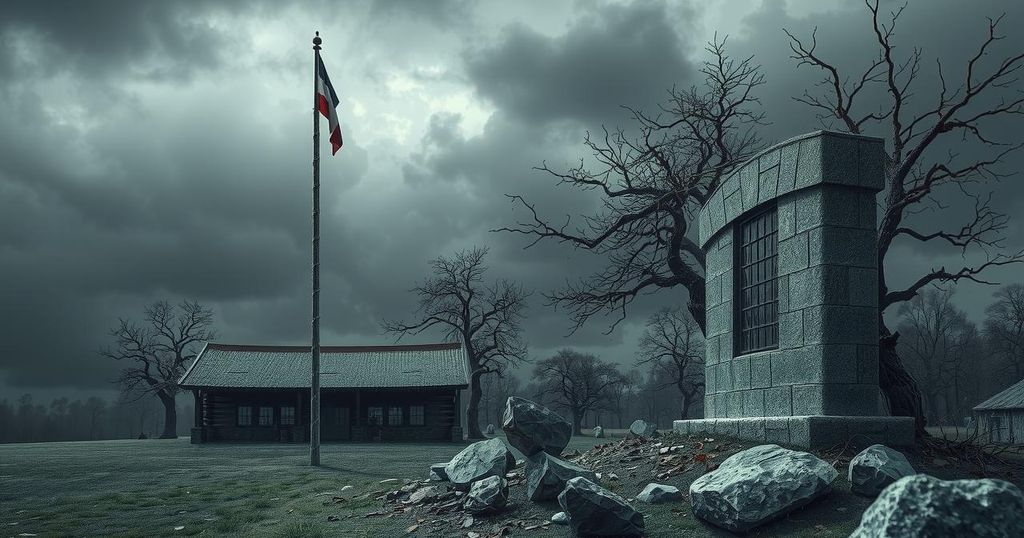Belgium’s historical responsibility in the 1994 Rwandan genocide is often downplayed compared to France’s role. Starting from its colonial management post-World War I, Belgium’s policies fostered ethnic divisions favoring Tutsis over Hutus. This mismanagement culminated in the neglect of rising tensions, leading to the eventual genocide and a delayed acknowledgment of its role in Rwanda’s tragedy.
Belgium’s involvement in the 1994 Rwandan genocide often remains overshadowed by France’s role, yet its historical responsibility is significant. This traces back to post-World War I, when Belgium acquired administrative control over Rwanda through a League of Nations mandate. Lacking knowledge about these countries, Belgian authorities chose to administer them via local power structures, primarily the feudal system led by a mwami, while relying on the aid of missionaries for governance and development.
Belgian colonialists’ beliefs in anthropometry led them to categorize the Tutsis as racially superior, impacting governance and social relations. They perceived the Tutsis as descendants of a dominant cattle-herding people. This view created a hierarchy that favored Tutsi rulers over the native Hutu farmers and Twa, leading to deep-rooted ethnic divisions exacerbated by Belgian favoritism.
Through their actions, the Belgians undermined Rwanda’s monarchy by deposing King Yuhi Musinga in 1931, undermining local religious authority, and promoting Catholicism. Such interference replaced Rwandan unification practices with foreign religious ideologies, placing Tutsis in a privileged position as colonial collaborators. By exploiting educational avenues strictly for Tutsi individuals, it incited growing resentment among the Hutu majority who then endured increasing oppression.
The Belgian administration’s dismantlement of Rwandan governance structures led to civil unrest. The initial uprising in 1959 targeted Tutsi leaders rather than the colonial government, fueled by Belgium’s military support for Hutu movements that decried Tutsi dominance. Following Rwanda’s independence in 1962, Belgium’s continued alignment with Hutu leadership led to the exclusion of Tutsis from political power, firmly solidifying tensions.
In the years leading up to the genocide, Belgium’s policies favored Hutus, evident in the support given to President Juvénal Habyarimana. While Belgian development aid thrived during this period, mismanagement and social decline emerged as underlying issues. When conflict erupted with Tutsi-led forces in Uganda, Belgium failed to provide adequate military support to the Rwandan government, ultimately aligning with France’s interventionist stance.
Despite their awareness of escalating political strife, Belgium’s diplomatic efforts tended toward negotiation without belief that ethnic tensions would culminate in genocide. They miscalculated the Hutus’ capacity for violence against Tutsis amid rising tensions propagated by hate rhetoric.
In early 1994, a grim turn of events led to the murder of ten Belgian peacekeepers, prompting an urgent evacuation of Belgian nationals. In the aftermath, Prime Minister Wilfried Martens decided to withdraw Belgian forces from Rwanda, effectively abandoning the nation to impending violence. Only years later, in 2000, did Belgian leadership offer apologies for their lack of action during the crisis, acknowledging the gravity of their historical misjudgment and involvement in Rwanda’s tragic fate.
Belgium’s role in the Rwandan genocide is a critical aspect of its colonial history, marked by a neglectful understanding of local dynamics and an obsession with racial classifications. Their administration favored Tutsis over Hutus, fostering deep divisions that ultimately contributed to the genocide. The lack of timely intervention and the misjudgment of escalating tensions during the Rwandan crisis underscore the broader implications of colonial policies and their devastating consequences. The acknowledgment of this responsibility, highlighted by official apologies years later, signifies a crucial step towards reconciling with this painful chapter of history.
Original Source: www.ktpress.rw




